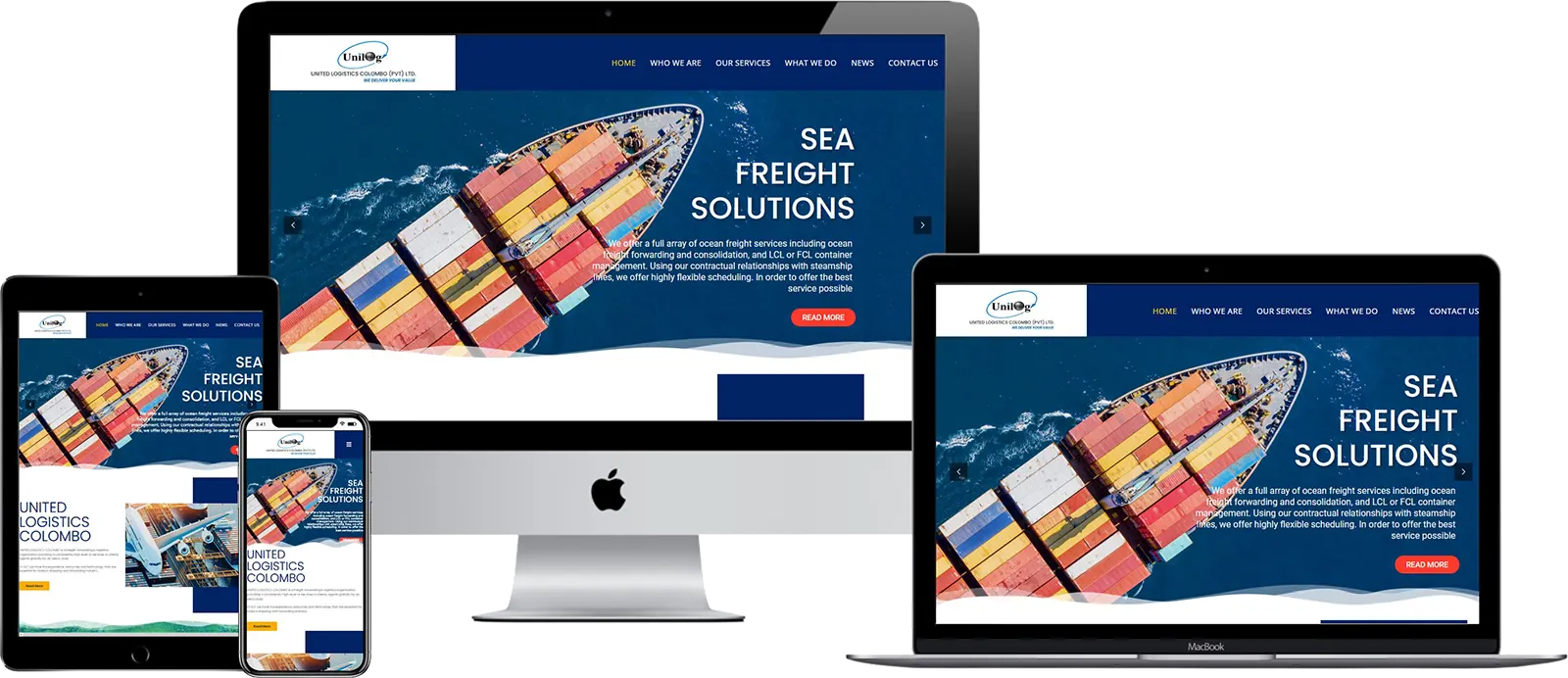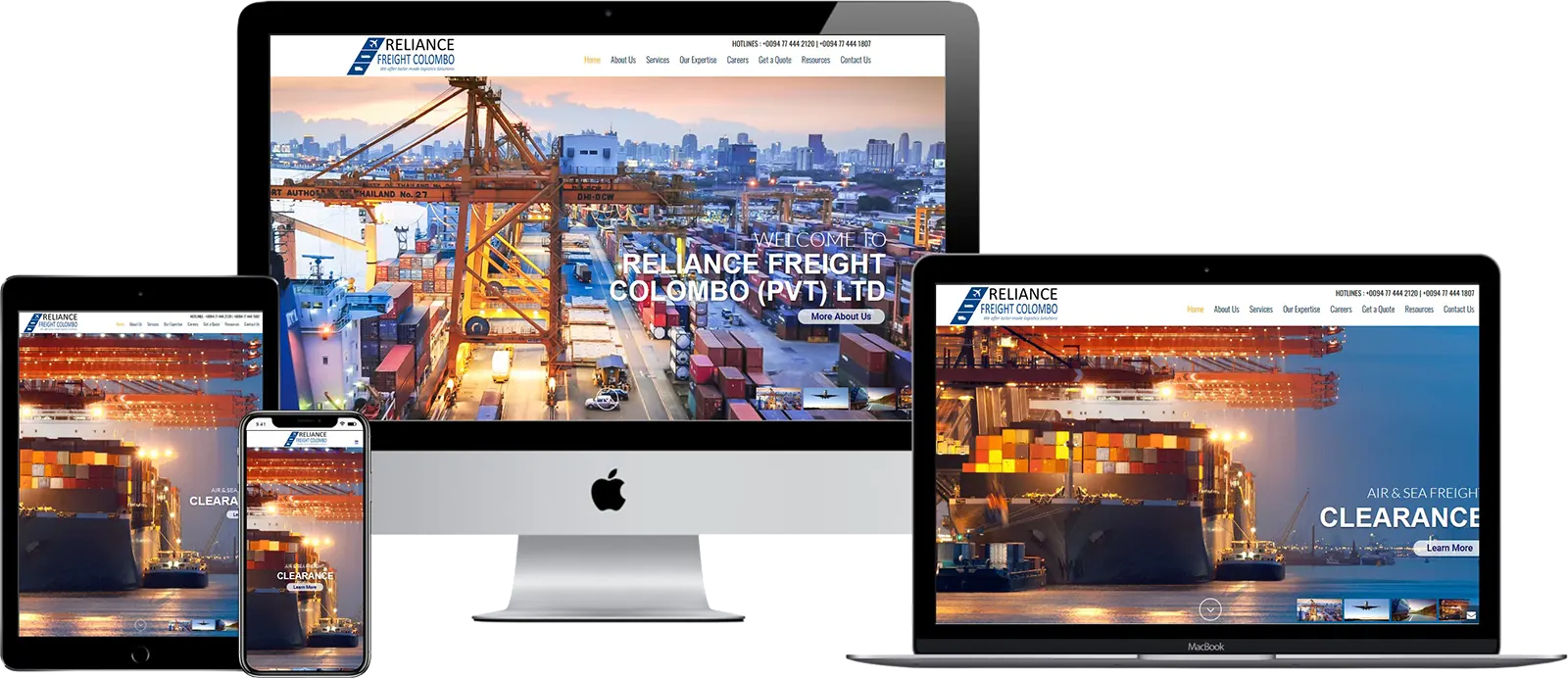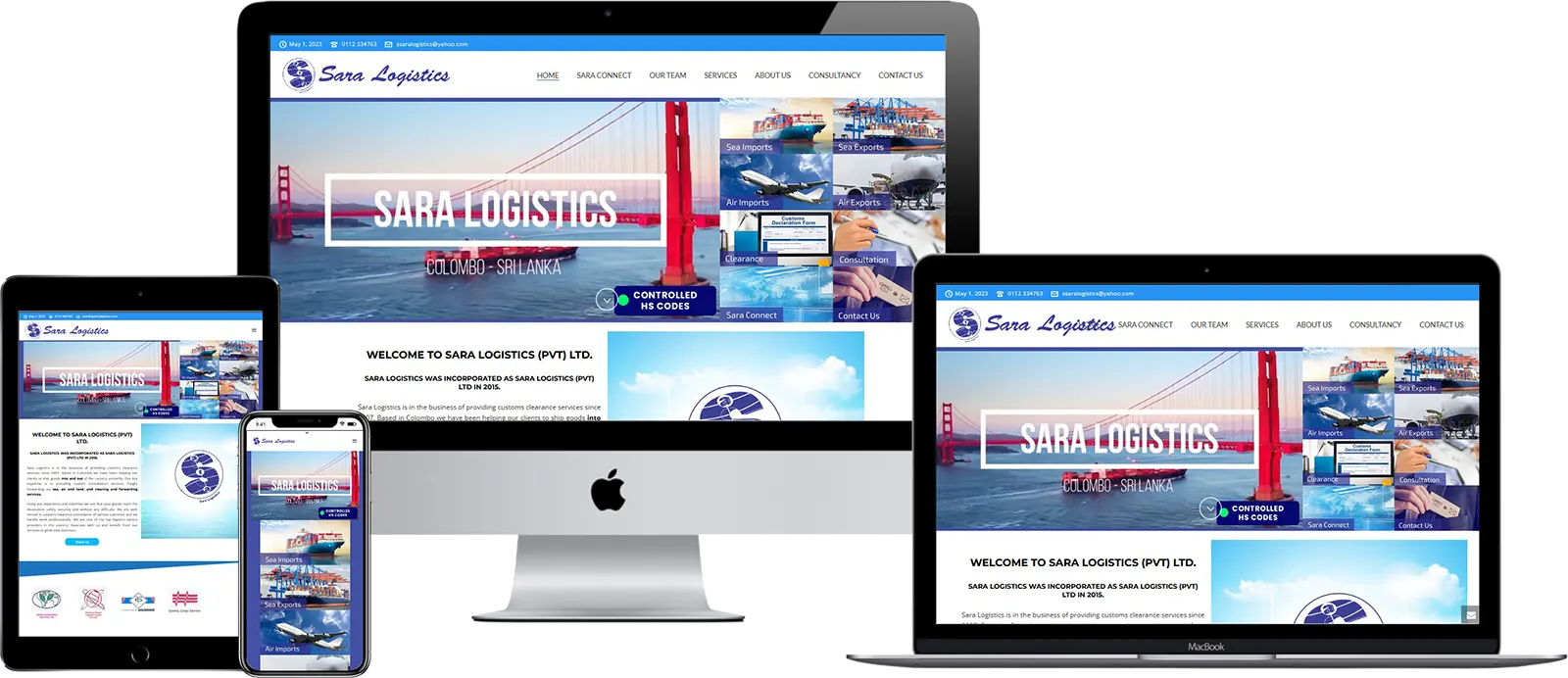
Why its important to have a professional website for freight forwarding businesses?
A website is extremely important for a logistics and freight forwarding business for several reasons:
A website allows a logistics and freight forwarding business to establish a strong online presence, which is crucial in today’s digital world. By having a website, a business can be found by potential customers and clients from all over the world, increasing its reach and potential for growth.
A website allows a logistics and freight forwarding business to showcase its services, expertise, and capabilities to potential clients. This can include detailed descriptions of the services offered, testimonials from satisfied clients, and case studies of successful projects completed.
A website can streamline communication between a logistics and freight forwarding business and its clients. Contact forms, chatbots, and other messaging features can allow clients to easily get in touch with the business, reducing the time and effort needed for communication.
A well-designed website can help build trust with potential clients by providing a professional image and a clear demonstration of expertise. This can be accomplished through the use of high-quality images, testimonials from satisfied clients, and a professional design that reflects the values and ethos of the business.
A website can improve the efficiency of a logistics and freight forwarding business by providing information and resources to clients online. This can include tracking information, customs forms, and other documents that can be accessed and completed online, reducing the need for manual communication and paperwork.
A website can help a logistics and freight forwarding business improve its visibility on search engines like Google. By optimizing the website for search engines, businesses can increase their chances of being found by potential clients who are searching for the services they offer.
A website can provide clients with real-time information about the status of their shipments. This can include tracking information, estimated arrival times, and any delays or issues that may arise.
A website can offer clients self-service options, such as the ability to book shipments, request quotes, and pay invoices online. This can save time for both the business and the client, and reduce the need for manual intervention.
A website can be used to demonstrate the expertise of a logistics and freight forwarding business by providing valuable resources such as articles, whitepapers, and case studies. This can help position the business as a thought leader in the industry and attract clients who are looking for a partner with deep knowledge and expertise.
A website can facilitate partnerships between a logistics and freight forwarding business and other companies in the supply chain. For example, a business could use its website to showcase its capabilities to manufacturers or distributors, and use that exposure to generate new business partnerships.
A website can enhance the credibility of a logistics and freight forwarding business by providing information about the company’s history, team members, and awards or certifications. This can help build trust with potential clients and differentiate the business from competitors.
A website can serve as a platform for marketing and advertising efforts, allowing businesses to promote their services to a wide audience through targeted advertising, email marketing campaigns, and social media integration.






